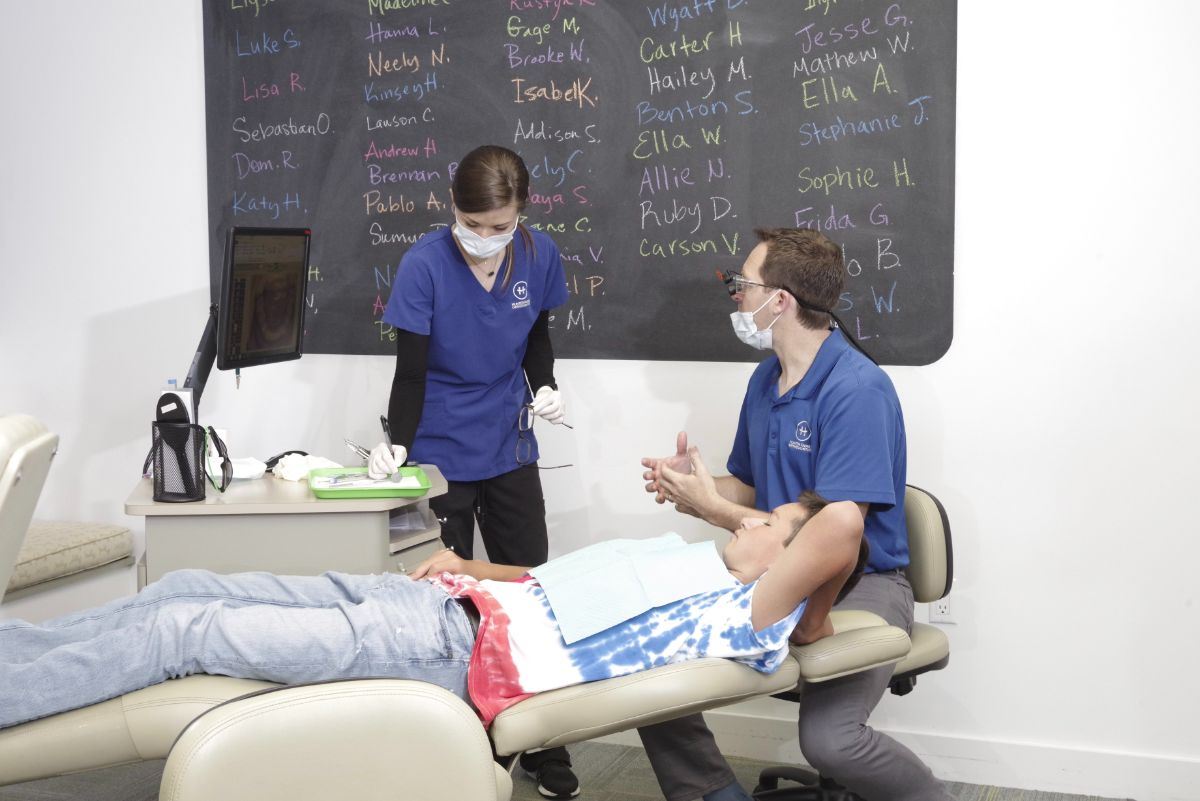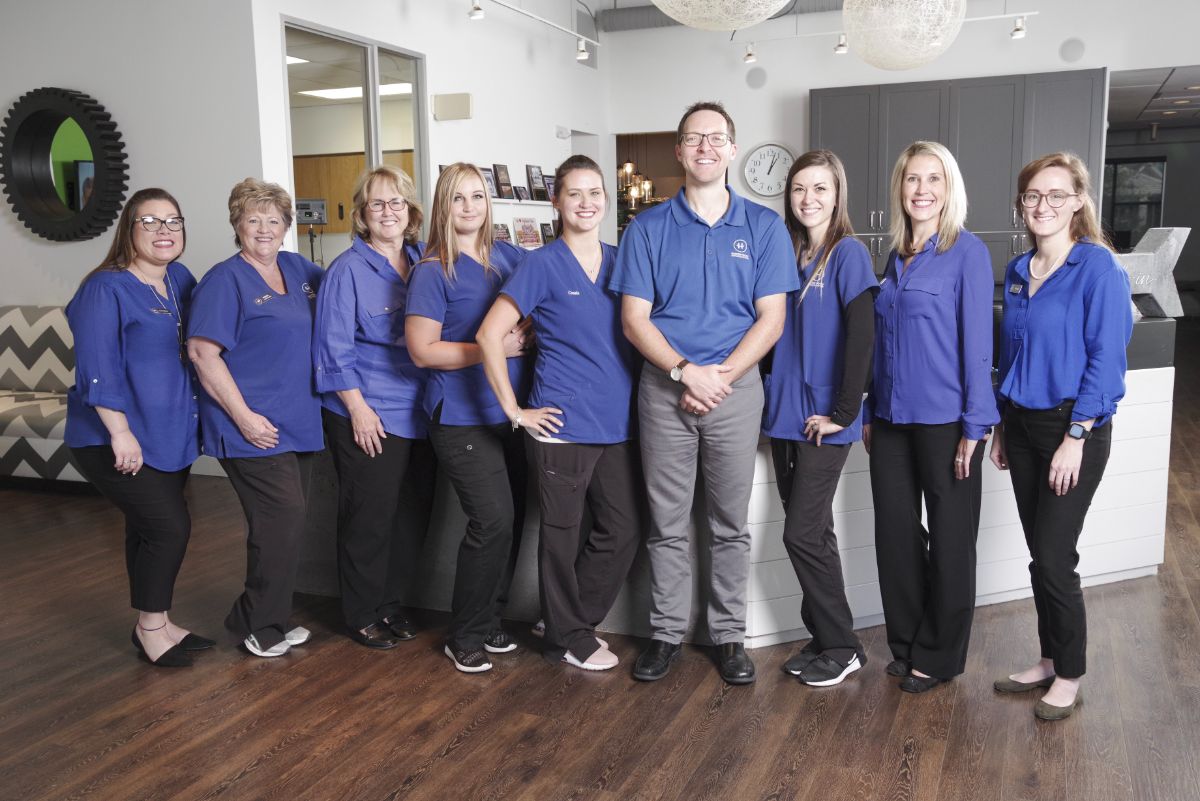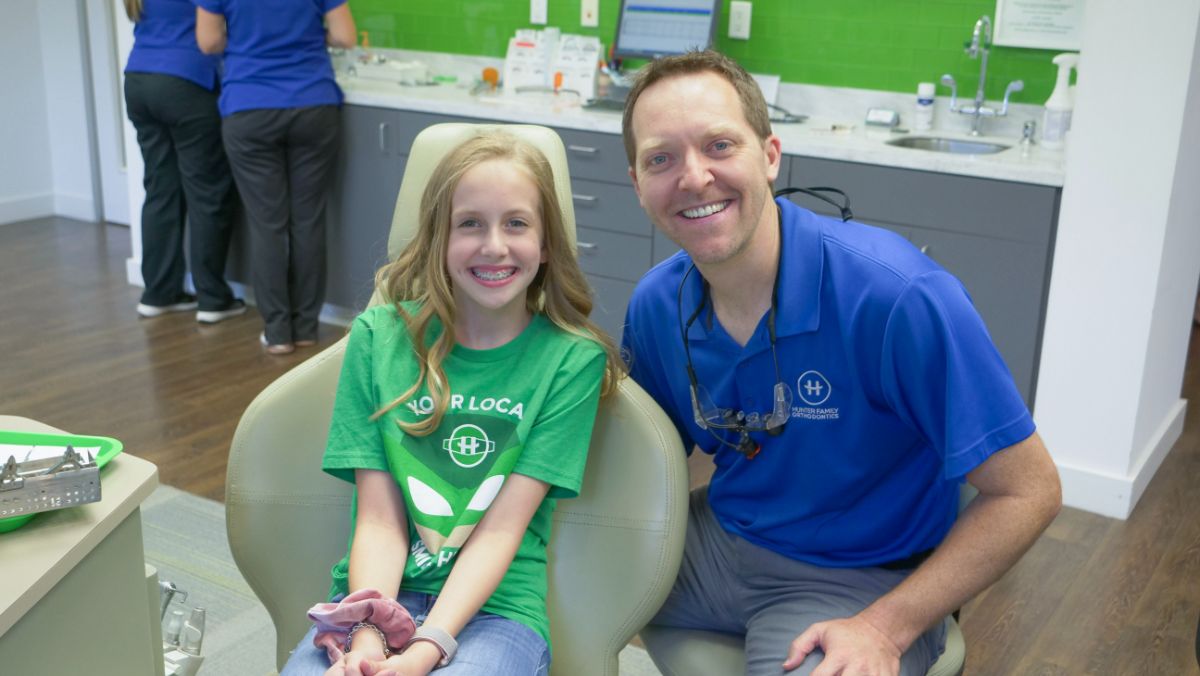With so many options available for just about everything these days, it can be hard to know if you are making the right decision. That decision is especially important when choosing the right orthodontist for your unique smile needs. Here at Hunter Family Orthodontics, Dr. Hunter and his team believe everyone deserves a new smile and we’ll work with your budget to help make treatment affordable to anyone interested in a healthy and beautiful smile. We believe educated patients can make the best partners in orthodontic treatment. So, we know you deserve an experienced orthodontist that helps you feel empowered from your first appointment to your most recent.
But what else should you be asking? To help you begin your orthodontic journey, we’ve put together this list of questions to ask before committing to an orthodontic practice for treatment.
Is the doctor a trained orthodontic specialist?
You would think this is a no-brainer for your decision making but you might also be surprised to find out that just because your dentist offers orthodontic treatment that doesn’t mean they are specially trained in orthodontics. Many general dentists also offer braces treatment and clear aligner therapy in addition to common dental services such as cleanings, fillings, crowns, and dentures. While an orthodontist, on the other hand, specializes only in providing orthodontic services.
After a dentist has completed their undergraduate medical education, they must attend a graduate school specifically for dentistry and pass a certification exam before beginning their general dentistry work. The same goes for orthodontists except after their general dentistry certification they must attend an extremely competitive orthodontic residency program. These programs typically last another 2 to 3 years and include full-time training meaning the orthodontist has:
- Studied the growth and maturation of teeth and jaw
- Been introduced to numerous case studies
- Developed diagnostic skills
- Learned biomechanical techniques to properly move teeth
- Studied how to change the development of the dental alveolar complex and facial growth of younger patients
While there are some exceptions, most dentists simply will not possess this level of in-depth orthodontic training and experience. If you are looking for foundational oral health maintenance, trust your dentist. But, if you are needing specialized orthodontic care, you can trust that Dr. Hunter has the knowledge and experience to provide specialized treatment with the latest in orthodontic care. At Hunter Family Orthodontics, our expert care is based on a foundation of honesty, integrity, and excellence.

What treatment options does the orthodontist offer?
Most patients we treat choose traditional metal braces to straighten their teeth, and while this is the most common option, you have several other options available to reach your smile goals quickly and effectively. By pairing state-of-the-art technology with our thorough understanding of the movement during facial growth, Hunter Family Orthodontics is able to successfully treat many dental issues based on your unique needs and goals using traditional metal braces, clear braces, Invisalign, lingual braces, jaw surgery, and accelerated orthodontics, like mini implants and diode laser.
Traditional Metal Braces
Traditional metal braces are the most widely used type of fixed orthodontic appliance. Though past incarnations have been bulky, awkward, and painful, today’s metal braces are smaller, lighter, and much more comfortable. This method uses high-grade stainless steel brackets and archwires that are gradually tightened to adjust your teeth. You also have the added option of adding colored elastic bands for a smile that matches your personality.
Clear Braces
Ceramic braces use the same components as traditional metal braces, but instead of metal, the brackets on the front side of the teeth are made of a clear or tooth-colored ceramic material. This makes clear braces a common choice for teenagers and older patients who do not like the aesthetic of the metal look. Clear braces do require more care as the ceramic pieces can break and are prone to staining depending on your eating and cleaning habits.
Invisalign
Unlike traditional braces, this kind of orthodontic treatment doesn’t rely on a system of metal or ceramic brackets and wires. The Invisalign system is made up of a series of invisible, removable acrylic trays that straighten your teeth by applying steady pressure on your teeth as you wear them. The trays are replaced every 1 to 2 weeks to make this adjustment gradually. Though you can remove them to eat and brush your teeth, you will need to make sure you are wearing them about 22 hours a day for them to be effective.
Lingual Braces
Lingual braces, sometimes called hidden or incognito braces, are a new way to wear braces. They are made of the same materials as traditional metal braces but are custom-fit to the backside of your teeth so no one will ever know you are wearing them. Some patients do report some discomfort and rubbing initially but this does wear off as you get used to them.
Jaw Surgery
Corrective jaw surgery, or orthognathic surgery, treats and corrects abnormalities associated with facial bones, specifically your jaws and teeth. These abnormalities can interfere with your ability to talk, sleep, and enjoy your current lifestyle and even cause sleep apnea, snoring, and TMJ pain. When paired with orthodontic treatment, jaw surgery can correct these concerns and improve the overall appearance of your facial profile. Dr. Hunter will work with an oral and maxillofacial surgeon as a team to ensure that if you need surgical orthodontics, you will receive the best care possible.
How frequent are follow-up appointments with the orthodontist?
You don’t want to move in but you don’t want to forget you even have an orthodontist treatment in process, right? Well, your exact follow-up timing will vary depending on the orthodontic treatment plan you and our expert team determine is right for you. For most patients, adjustment appointments will be scheduled for about every four to eight weeks. Patients using Invisalign may be seen slightly less frequently but regardless, these appointments are crucial for your overall orthodontic process!
The average process will take anywhere from 12 to 36 months to achieve your perfect smile but with most treatment plans, visible results are evident as early as the first few months. We know you’re busy and we value your time, just give us a heads up if you’re running late or need to reschedule but don’t forget that your participation in the follow-up care is just as important.

Trust your smile to the experts at Hunter Family Orthodontics
Hunter Family Orthodontics is the location for modern orthodontic treatment. Our office is conveniently located to better serve The Woodlands area. This means great orthodontic care is only a few minutes from your home, school, or work. And, since our sole specialty is orthodontics, you’ll receive nothing but the best in treatments, cost, and efficiency as we work to straighten your smile.
There’s never been a better time to reach for the smile you’ve always wanted, so get in touch today to schedule your FREE consultation with our expert orthodontic team!

